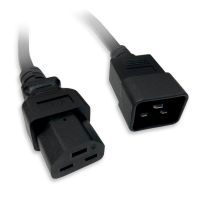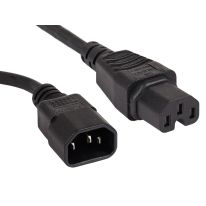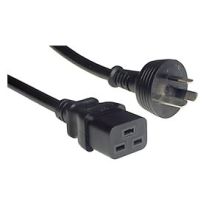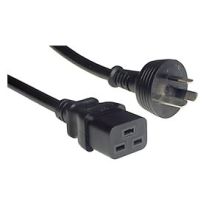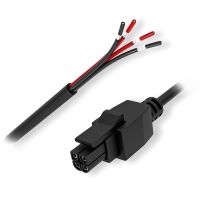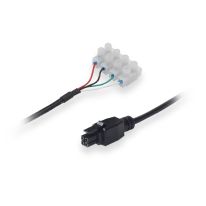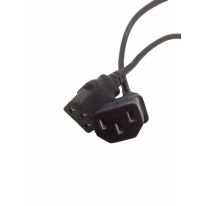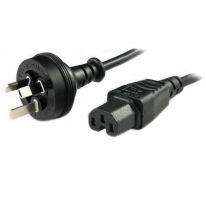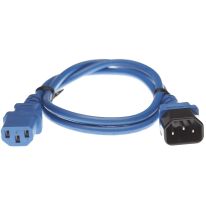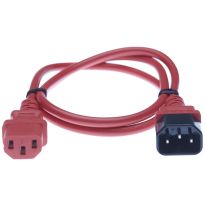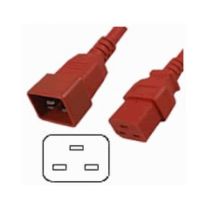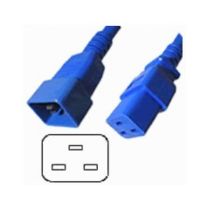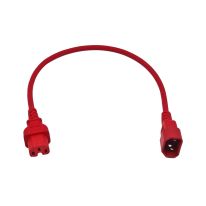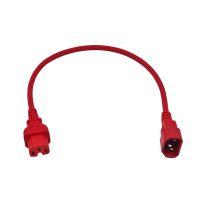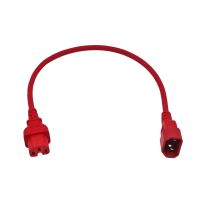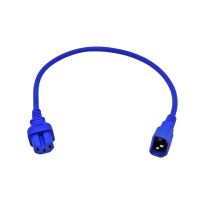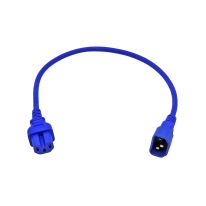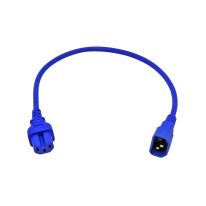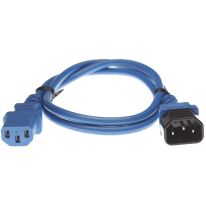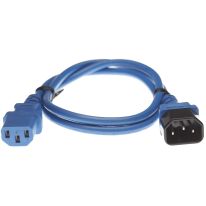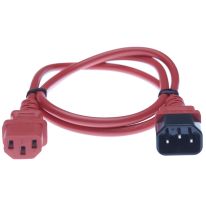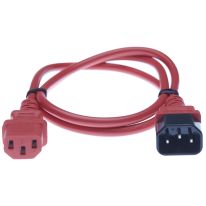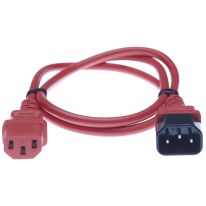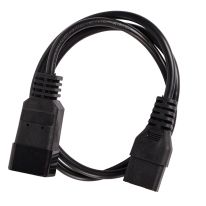Shop Power Cords and IEC Compliant Cables
Power cords and IEC compliant cables are crucial elements of any electronic and cable management system. Choosing the right products for your desired purpose is important, as it ensures the right amount of power is being sent to your device, and they can minimise potential safety or electrical risks.
You can shop 4Cabling’s extensive range of power cables for a range of commercial and residential solutions. We stock ready to use cables suitable for both novices and IT experts. We also have an extensive number of extension lead options and lengths, among other configurations.
If you have any questions about which products will work best for your cabling system, fill out our contact form and we will be in touch.
FAQs
What is an IEC cable?
An IEC cable is any type of electronic cable that means the safety standards set by the International Electrotechnical Commission (IEC). These cables are used to connect electronic devices to a power source, such as a wall outlet. They can be used to supply power to devices including computers, laptops and printers. Examples can include coloured IEC electrical wires, coloured IEC cables, or lockable IEC leads.
There are two main types of IEC Cables; the connectors mount with cables are called female connectors/sockets, and the connects mount with panels are referred to as male connectors/plugs.
When you invest in high quality IEC power cabling, you are not only ensuring that you are meeting international safety standards, but you are also improving the quality and efficiency of your electrical power supply, which can reduce the risk of malfunction or electrical failure.
What is the difference between ISO and IEC?
Both the International Organisation for Standardisation (ISO) and the International Electrotechnical Commission (IEC) are international organisations that establish standards for the safety, reliability and efficiency of management systems, including that of power cords and cable management.
The International Organisation for Standardisation (ISO) is a broader set of standards covering almost every industry including technology, agriculture and healthcare industries, to name a few. On the other hand, the International Electrotechnical Commission (IEC) establishes regulations specific to electrical, electronic and related technologies.
Manufacturers are responsible for ensuring that cable products meet the safety, health and environmental standards set by oth the ISO and the IEC before distributing the products, especially in the European market.
What are the benefits of Locking Power Cables?
Locking power cables, as the name suggests, are designed with a special locking mechanism that prevents them from being accidentally unplugged from their power socket/source. They provide a secure and reliable connection for users, especially in dense and high traffic areas where it can be easy to trip or bump power cords. For these reasons, locking power cables, especially locking IEC power cables, are typically used in congested, high-vibration environments including industrial settings, music stages or on film sets.
Key benefits of using power cable locks include:
- The ability to prevent power disconnections and disruptions: the locking mechanism reduces the likelihood of the cable becoming detached from its power source.
- Increased safety: locking power cables minimise the risk of electrical hazards or power outages. This overall saves time, money and creates an ease-of-mind in the long-term for users.
- Reliability: the locking function results in a consistent and secure connection, which is especially important in critical applications such as medical equipment, or live music productions.
- Durability: the cords are constructed with high-quality materials that ensure a long life span and the ability to withstand frequent, rugged use.
How do I choose an electrical cord?
With countless options for electrical cords on the market, it can become overwhelming and confusing to decipher which electrical cord option would best suit your needs. Here are factors to consider when choosing an electrical cord:
- Purchase a longer cord that you anticipate. This is especially the case if you are purchasing an extension lead. It’s important to leave extra room for error and purchase a longer electrical cord than you initially account for.
- Thicker wires carry more power over longer distances. If you are using a product that will require a lot of power, it’s always best to purchase a thicker extension cord, as they will be able to carry more power safely.
- For outdoor purposes, choose the brightly coloured options. These power cords typically carry more power and are more durable for outdoor environments.
- If the cord doesn’t list a maximum amperage, you shouldn’t purchase it. It’s pivotal to know the ampage power your cord is capable of, which is especially important for indoor products and appliances where power may not be that strong.






